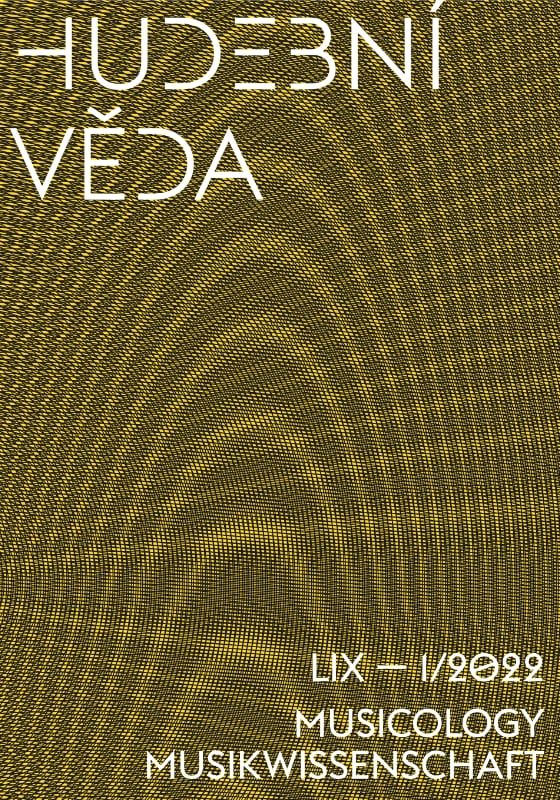Článek | Article
Autor:
Vojtěch Podroužek
Název:
New Insights into the Origins and Biography of the Composer Antonin Reichenauer (1696–1730)
Variantní název:
Nové poznatky o původu a biografii skladatele Antonína Reichenauera (1696–1730)
Zdrojový dokument:
Hudební věda LIX (2022), č. 1, s. 3–28.
DOI:
https://doi.org/10.54759/MUSICOLOGY-2022-0101
Trvalý odkaz:
https://kramerius.lib.cas.cz/uuid/uuid:fac7fc8e-2ae9-4dd1-bd32-4919ed6713ce
English summary:
There has been a lot of confusion about the birthdate and origin of the composer and organist Antonín Reichenauer. This study summarises the state of research on this important representative of Prague’s musical life in the 1720s and presents a new hypothesis about his origins.
The extensive survey of the parish registers of Prague’s Lesser Town opened the path to this hypothesis when revealed the name of Ferdinand Julius Reichenauer, a burgher from the northern Bohemian town of Bílina. On 26 March 1696, his brother František Antonín Reichenauer was baptised in Bílina, who can with high probability be identified with the composer. This reasoning is based on the fact that the mentioned baptismal date is entirely consistent with the age of 34 years given in the record of the composer’s death in Jindřichův Hradec in 1730. The hypothesis is also compatible with Trolda’s assumption of the composer’s origins in northern or north-western Bohemia and with the abundant occurrence of Reichenauer’s works in what is now the Ústí nad Labem region. The example of Reichenauer’s contemporary Joseph Brentner shows that it was not uncommon for the composer to use only the second of his first names. In the light of the new findings, the first mention of Reichenauer’s first name Johann by Dlabač appears to be erroneous.
The article’s author then considers the family background and environment from which Reichenauer probably came and summarises the findings of his Prague activities. Attention is paid to the identification of the houses in which the composer resided in the Lesser Town or the evidence of the recognition Reichenauer received as a composer in Prague during his lifetime. The question of his anagrams, which are found in the Osek music inventory and on several music sources from Antonín Görbig’s music collection, is also addressed. The copyist in whose hand these music sources are written, the young Václav Jan Paschal, probably had the composer’s autographs directly as a model, as suggested by some similarities in the notation and layout of the title pages. On this assumption, we can conclude that the anagrams of the name Reichenauer comes directly from the composer.
České resumé:
O datu narození a původu skladatele a varhaníka Antonína Reichenauera dosud panovala řada nejasností. Studie shrnuje stav bádání o tomto významném představiteli pražského hudebního života dvacátých let 18. století a přináší novou hypotézu o jeho původu.
Cestu k ní otevřel plošný výzkum malostranských matrik, při kterém bylo objeveno jméno malostranského měšťana Ferdinanda Julia Reichenauera pocházejícího ze severočeské Bíliny. 26. března 1696 byl v Bílině pokřtěn jeho bratr František Antonín Reichenauer, kterého lze s velkou dávkou pravděpodobnosti ztotožnit se jmenovaným skladatelem. Tato úvaha je založena na zmíněném křestním datu, které je zcela v souladu s věkem 34 let uvedeným v záznamu o skladatelově úmrtí v Jindřichově Hradci v roce 1730. Hypotézu podporuje také Troldův předpoklad o skladatelovu původu v severních či severozápadních Čechách i hojný výskyt Reichenauerových děl na území dnešního Ústeckého kraje. Na příkladu Reichenauerova současníka Josefa Brentnera je patrné, že nebylo výjimkou, aby skladatel používal pouze druhé ze svých křestních jmen. Ve světle nových poznatků se Dlabačem poprvé uvedené Reichenauerovo křestní jméno Johann jeví jako chybné.
Autor článku dále uvažuje o rodinném zázemí a prostředí, odkud Reichenauer pravděpodobně pocházel, a shrnuje poznatky o jeho pražském působení. Pozornost je věnována identifikaci domů, ve kterých skladatel na Malé Straně pobýval, či dokladům o uznání, kterého se Reichenauerovi jako skladateli v Praze během jeho života dostalo. Řešena je také otázka jeho anagramů, které se vyskytují v oseckém inventáři a na několika hudebninách z hudební sbírky Antonína Görbiga. Kopista, jehož rukou jsou psány a jenž je identifikován jak mladý Václav Jan Paschal, měl zřejmě za předlohu přímo skladatelovy autografy, čemuž nasvědčují některé podobnosti notopisu a rozvržení titulních stran. Za tohoto předpokladu můžeme soudit, že anagramy jména Reichenauer pocházejí přímo od skladatele.
Keywords:
18th century music; Baroque music; Bohemian composers; Antonín Reichenauer; parish registers; birthdate; biography; anagrams; Prague; Bílina
Klíčová slova:
hudba 18. století; barokní hudba; čeští skladatelé; farní matriky; Antonín Reichenauer; datum narození; biografie; anagramy; Praha; Bílina
České znění článku [PDF]
